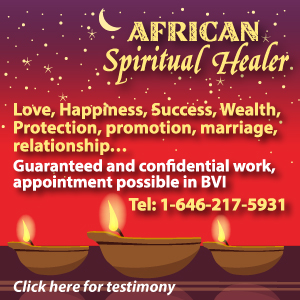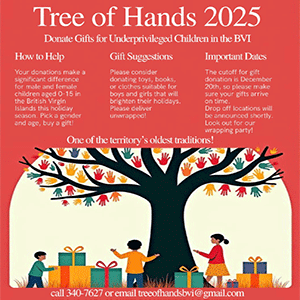You are not crazy – How to deal with hurricane trauma
Hurricane Irma has passed leaving major devastation of homes, businesses, and lives.
The effects during and after a hurricane can have very strong emotional impact on those who experience the devastation.
For those (male and female) who are experiencing distress, anxiety, fear, hopelessness and helplessness, you are not alone.
Devastation and disaster happen everyday and, for some, it is hard to move on.
The first days after a disaster can be overpowering emotionally, mentally, physically, and even spiritually.
It is important to note that we all react differently in devastating and tragic situations.
Allow yourself to cry, scream, curl up in fetal position, or even staying quiet are all OK.
Being able to understand common responses can help you to cope effectively with your feelings, thoughts, and behaviours.
The typical responses to traumatic events are shock and denial, usually shortly after the event. It is important to know that those are very normal protective reactions. You are not crazy; you are reacting normally to a tragic event.
When a person encounters a shocking experience, it is often sudden and can cause intense disturbance of your emotional state and may leave you feeling confused and stunned.
Then here comes denial trying to not let you acknowledge that something happened or telling you that it not really that bad. You may temporarily feel numb or disconnected from life. Once again, both are normal responses.
It is important to remember that everyone reacts differently. This information is being shared to those who might be experiencing some difficulty and who might be wondering if something is wrong with them.
There are things you can do to help you if you have suffered traumatic situation.
Give yourself time to heal. Anticipate that this will be a difficult time in your life. Allow yourself to mourn the losses you have experienced. Try to be patient with changes in your emotional state.
Ask for support from people who care about you and who will listen and empathize with your situation. But keep in mind that your typical support system may be weakened if those who are close to you also have experienced or witnessed the trauma.
Communicate your experience in whatever ways feel comfortable to you – such as by talking with family or close friends, or keeping a diary or journal.
Find out about local support groups that often are available – such as for those who have suffered from natural disasters. These can be especially helpful for people with limited personal support systems.
Try to find groups led by appropriately trained and experienced professionals such as psychologists. Group discussion can help people realize that other individuals in the same circumstances often have similar reactions and emotions.
Engage in healthy behaviours to enhance your ability to cope with excessive stress. Eat well-balanced meals and get plenty of rest. If you experience ongoing difficulties with sleep, you may be able to find some relief through relaxation techniques.
Avoid alcohol and drugs.
Establish or re-establish routines such as eating meals at regular times and following an exercise programmes. This can be especially important when the normal routines of daily life are disrupted. Even if you are in a shelter and unable to return home, establish routines that can bring comfort. Take some time off from the demands of daily life by pursuing hobbies or other enjoyable activities.
Help those you can. Helping others, even during your own time of distress, can give you a sense of control and can make you feel better about yourself.
Avoid major life decisions such as switching careers or jobs – if possible, because these activities tend to be highly stressful. (American Psychological Association)
Be aware that PTSD, which stands for Post Traumatic Stress Disorder, is real and it often shows up when a traumatic event happens.
Those with PTSD may experience many of the same emotional and physical symptoms as those with a traumatic stress reaction.
Those with PTSD, however, experience trauma along with intense fear, helplessness or horror and then develop intrusive symptoms (such as flashbacks or nightmares ). Their symptoms will last more than a month and get in the way of normal life.
A traumatic event can undermine anyone sense of security, leaving them feeling helpless and vulnerable especially after a devastation as Hurricane Irma.
Children and teens are just as – or more so affected by a disaster. It can become traumatizing to relive or be exposed to devastating events.
When young children and teens experience a traumatic stressor, their first response is usually to look for reassurance from the adults who care for them.
The most important adults in a young child’s life are his/her caregivers and relatives. They can help re-establish security and stability for children who have experienced trauma by:
-Answering children’s questions in language they can understand so that they can develop an understanding of the events and changes in their life
-Developing family safety plans
-Engaging in age-appropriate activities that stimulate the mind and body
-Finding ways to have fun and relax together
-Helping children expand their ‘feelings’ vocabulary
-Honouring family traditions that bring them close to the people they love – example: storytelling, holiday celebrations, reunions, and trips
-Looking for changes in behaviours
-Helping children to get back on track
-Setting and adhering to routines and schedules
-Setting boundaries and limits with consistency and patience
-And showing love and affection
If you find that your emotional and mental state are not getting better and that you have serious disruption with daily functioning, please consult a trained and experience mental health professional or psychologists.
The Family Support Network would like for everyone to be safe and remember it will take all of us working together to bring these beautiful islands to be our ‘Nature Little Secrets’ once again.
“The happiest people are those who help others” – Bernard Rimlandm.
This article was written by Psychologist and Director of the Family Support Network Dr Sylvia Simmonds shortly after Hurricane Irma caused devastation throughout the British Virgin Islands on September 6. It was first published on social networking site Facebook.
Copyright 2025 BVI News, Media Expressions Limited. All Rights Reserved. This material may not be published, broadcast, rewritten or distributed.




















